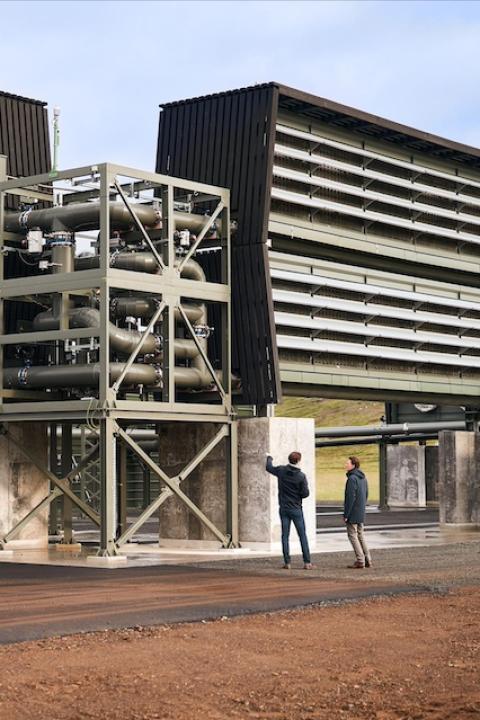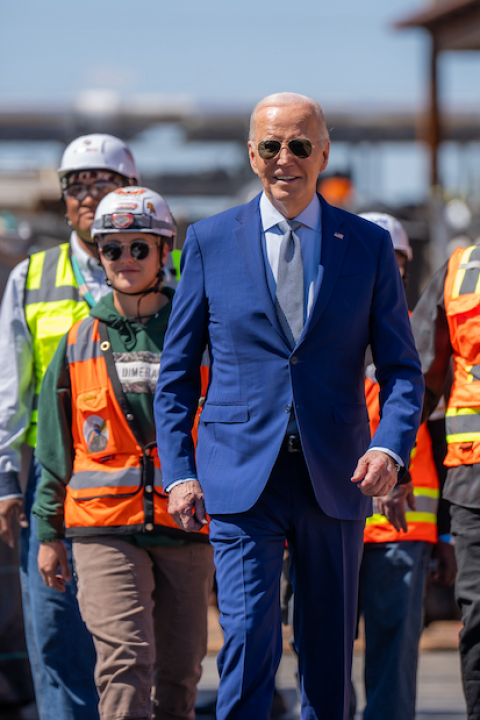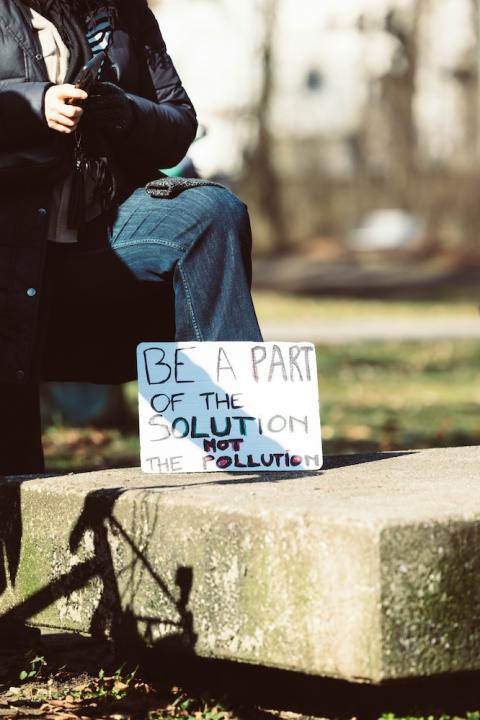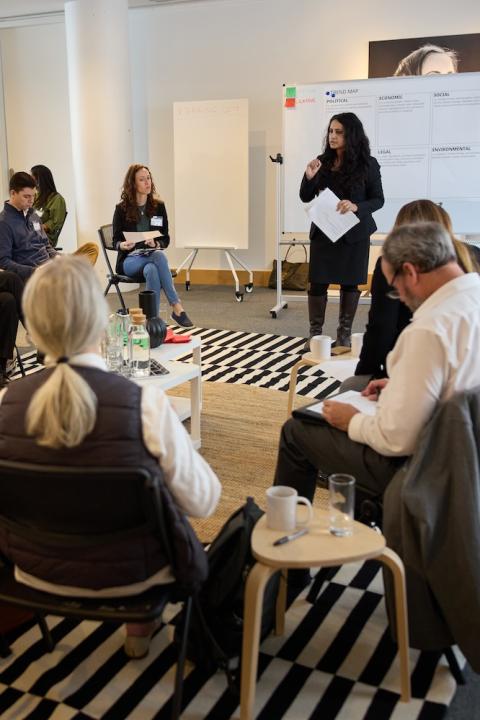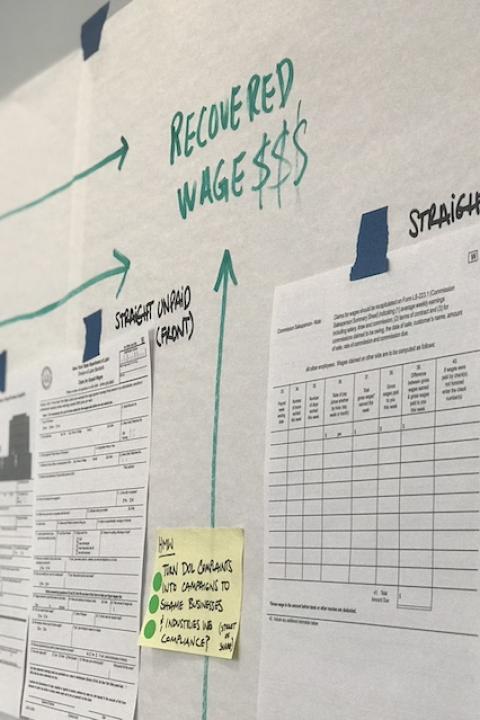
The carbon offsets market is plagued by weak transparency, an insufficient supply of credits, and skepticism about the quality of projects intended to remove carbon from the atmosphere. Yet a contingent of companies and organizations argue that getting to net-zero emissions means confronting that trust deficit and resurrecting the carbon market’s reputation.
Among those stepping into the fray is carbon-offset and financial company Aspiration. With roots in financial technology, it's offering carbon removal products and services at a time when others might be hesitant to enter those troubled waters.
Earlier this year, an investigation into the certifier Verra alleged that over 90 percent of its rainforest carbon offsets are worthless. Further, a report from the Berkley Carbon Trading Project revealed widespread over-crediting and “dubious” carbon offsets across the market.
But just because there are problems with the market doesn’t mean it should be abandoned, Olivia Albrecht, CEO of Aspiration, told TriplePundit. She argues carbon offsets are a necessary part of the path to net-zero, alongside ambitious emission reductions.
Even the most climate-committed company, country or organization — or individual, for that matter — cannot operate at net-zero today or for the foreseeable future, Albrecht said. “There’s not enough technology available to us today to operate truly as a carbon-neutral entity. As a consequence, you're going to need carbon credits to mitigate any residual carbon exposure, carbon liability and carbon emissions from company operations.”
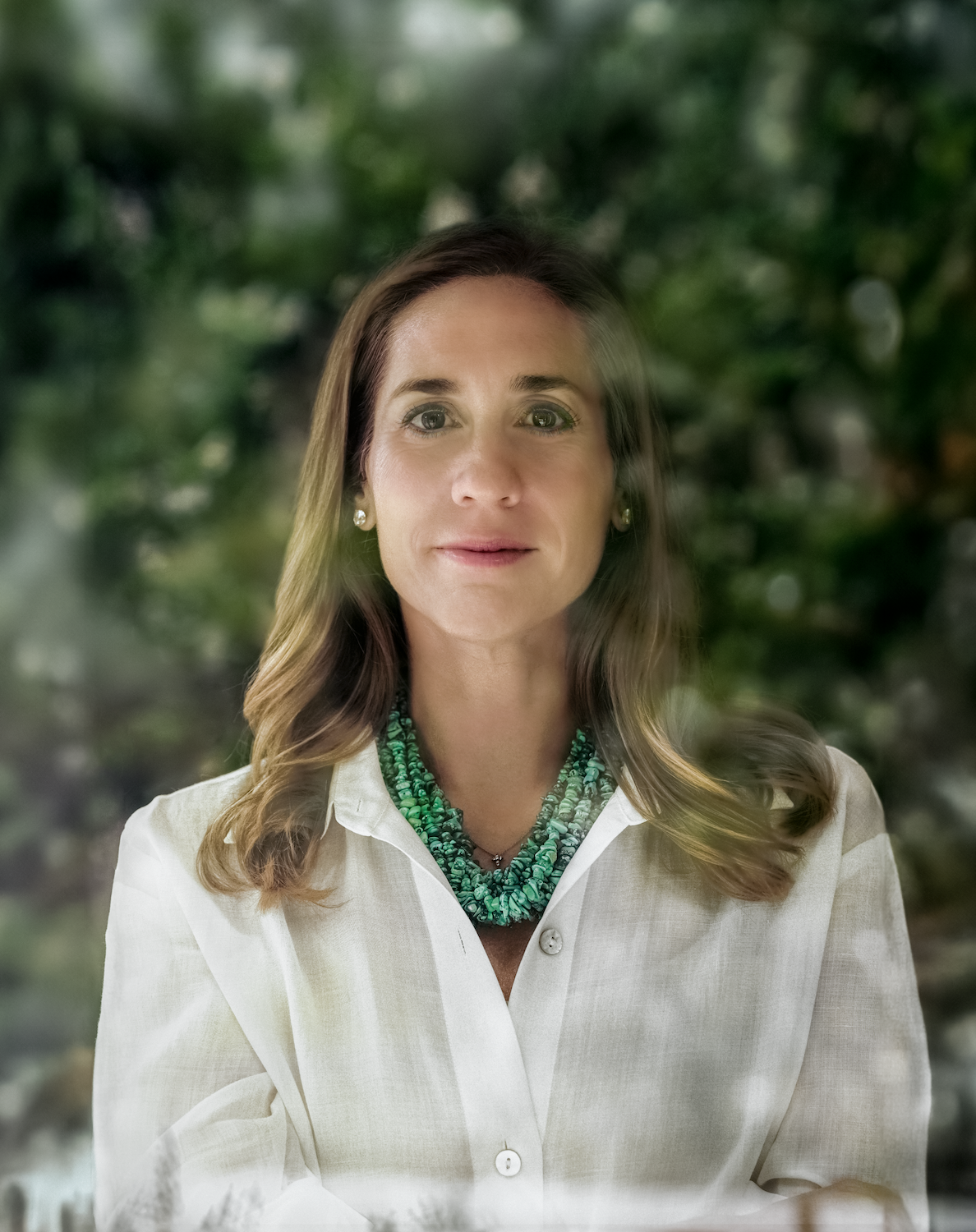
More than 1 billion tons worth of carbon credits have been issued over recent decades, she said. Considering the stream of greenhouse gas emissions reduction commitments around the world, achieving net-zero by 2050 will likely require over 7 billion tons of carbon removals or offsets per year.
With the growing raft of net-zero commitments, “we have an incredible supply [and] demand mismatch in the marketplace today, where there's too little supply for current and future demand,” Albrecht said.
There are also too few investment dollars allocated to natural climate solutions, she said. Some $650 billion in climate financing is distributed now, the bulk of it toward renewable energy sources.
While this is a key part of the solution, only a tiny fraction of that investment goes into natural climate solutions. In fact, the U.S. National Academy of Sciences estimates that “land-based sequestration efforts receive only about 2.5 percent of climate mitigation dollars.”
That is a missed opportunity, Albrecht said. Scientists estimate that natural climate solutions can provide 37 percent of the cost-effective carbon removal needed through 2030.
That’s why Aspiration turned its focus to the voluntary carbon credit market and “specifically focused on investments into nature-based carbon removal projects across the globe,” she said. “Natural climate solutions can be a very efficient and effective means of helping to deliver on net-zero ambitions.”
Nature-based solutions demand patience for payoff
Aspiration recognizes it entered this market for the long haul, Albrecht said. “In particular, for nature-based carbon solutions, it's not something as quick as turning on a light switch to create carbon credits. It takes multiple years to design, coordinate, organize, implement and execute high-quality, large-scale carbon projects. Trees grow at the pace that trees would like to grow. There is no accelerant to tree growth.”
Many of the projects that are nature-based are also “deeply embedded in communities where you're employing tens of thousands of farmers,” she said. “It is a huge coordination effort to engage with local communities, to attract and hire farmers from local communities, to participate in these large-scale community projects. That too takes time.”
That’s why investment should be made now to deliver the needs for the future, Albrecht explained. “Especially as we can see this incredible demand cycle in the future.”
Learning from what didn't work
“It's no secret that there's a significant amount of low-quality carbon credits in the marketplace today,” Albrecht said. “And that's too bad. We need to do more as an industry to help create global quality standards that are consistent and that can be upheld as part of the industry standard for what is and is not a carbon asset.”
Aspiration is actively involved with the Integrity Council for the Voluntary Carbon Market, which is working to propose a set of principles and global benchmarks to add much-needed credibility. Its recently issued guidelines were met with disappointment from some experts, but others commend it for advancing standards of integrity.
As for how Aspiration is approaching its investments into carbon offsets differently, Albrecht said the company has certainly taken note of the problems with the voluntary carbon offset market.
“We start with quality as our north star," she said. “We have a carbon team who have spent a decade-plus in their respective disciplines, who are biologists and scientists and experts in remote sensing and geospatial imagery.” The latter disciplines enable project oversight without the need for boots on the ground.
Aspiration’s investment partnerships include improved grazing projects with carbon offsets provider Native in the U.S. Northern Great Plains and South American Patagonia regions. The projects will increase grassland productivity and sequester carbon from the atmosphere in the soil.
The company also invests in carbon projects through Trees for the Future, a nonprofit training farmers in sustainable agroforestry practices across sub-Saharan Africa. Through this, Aspiration provides support, training and a steady income for 15,000 farmers, while planting 87 million trees in Kenya.
“We are also fastidious from a financial perspective in evaluating, understanding, and underwriting the risks and underlying projects,” Albrecht said. “Those words did not typically get used when thinking about the voluntary carbon markets before.”
Albrecht sees a shift toward traditional features of risk mitigation and management in the type of financial expertise the carbon market is attracting today. “We are starting to see more finance and legal professionals who have experience in underwriting risk coming to the table and helping to design investment solutions to help drive traditional capital,” she said. “Making this part of the carbon market will help us bring along more traditional pools of capital to invest in these assets.”
The carbon offsets industry needs to face reality in order to build trust
Reviving the carbon market’s reputation will take time, but Albrecht is confident the change is already underway.
“We in the industry can't run away from the reality that there were some lower-quality carbon assets in the market,” she said. “It starts with humility and recognition that there were some significant challenges in the market over the years. We have to proactively address that and explain what is changing on a go-forward basis and why this is going to be a more credible industry going forward.”
As that happens, carbon offsets will regain a respected place among the climate mitigation solutions needed today, she said. “If we can collectively put our heads together to make the carbon market better going forward, there's an incredible path to real environmental and societal impact to drive us forward to a net-zero global economy.”
Image credit: Spencer DeMera/Unsplash

Based in Florida, Amy has covered sustainability for over 25 years, including for TriplePundit, Reuters Sustainable Business and Ethical Corporation Magazine. She also writes sustainability reports and thought leadership for companies. She is the ghostwriter for Sustainability Leadership: A Swedish Approach to Transforming Your Company, Industry and the World. Connect with Amy on LinkedIn and her Substack newsletter focused on gray divorce, caregiving and other cultural topics.





